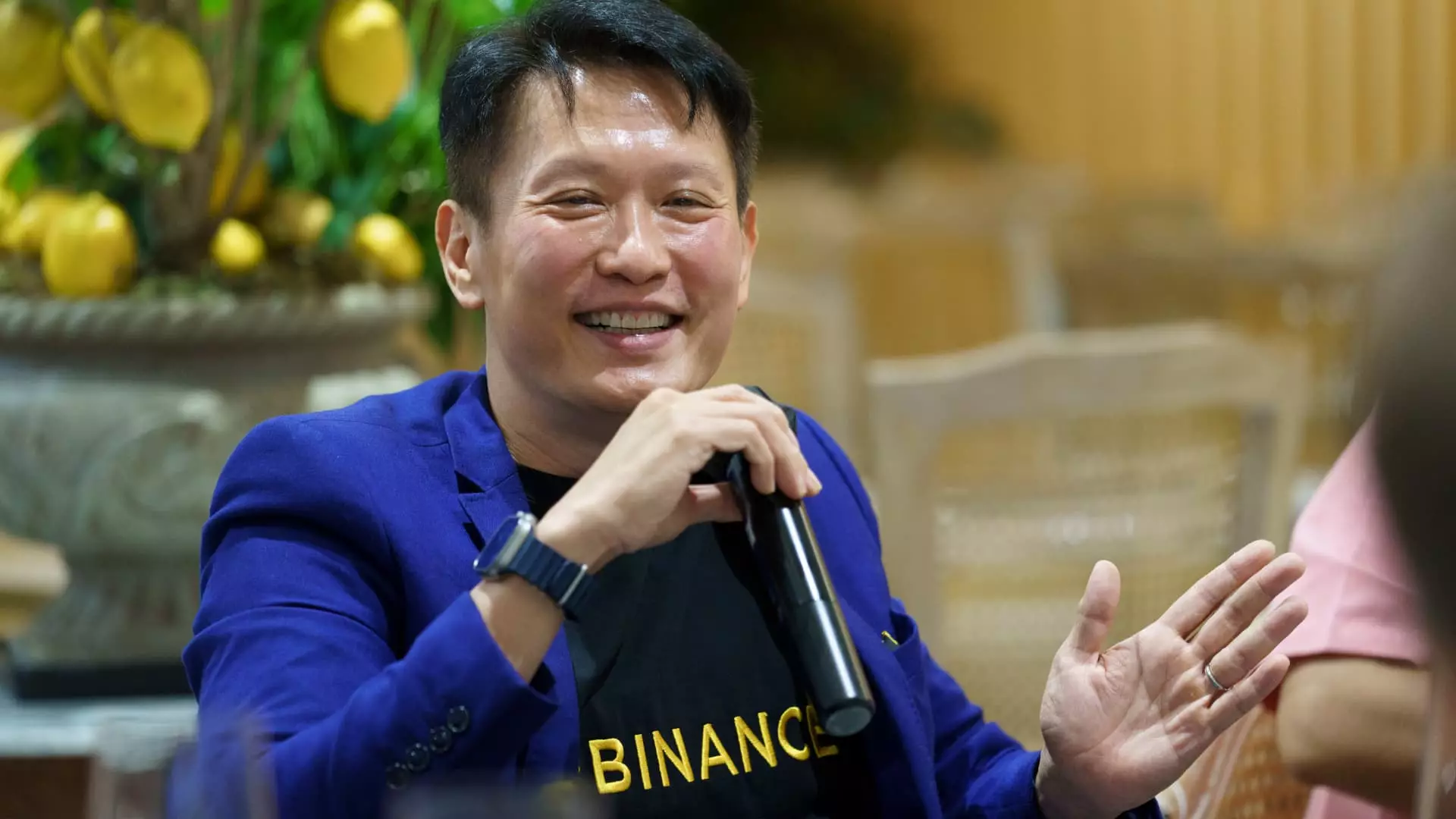In an unexpected twist, Richard Teng, CEO of Binance, has articulated a boldly optimistic view regarding the Trump administration’s influence on the cryptocurrency sector. Describing the current political environment as a “fantastic” reset, Teng believes that the tides have changed dramatically for cryptocurrencies, especially given the firm’s previous status as a regulatory outcast. This shift isn’t merely a passing phenomenon; for Binance and potentially the entire cryptocurrency industry, it signifies a foundational reconfiguration of political and operational landscapes that had previously appeared hostile.
Seemingly overnight, Binance transitioned from a target of regulatory scrutiny to a contender for political relevance in Washington D.C., a journey punctuated by key regulatory changes. Just 16 months prior, the company was enduring a record $4.3 billion settlement with regulators that prompted the departure of its controversial billionaire founder, Changpeng “CZ” Zhao. Now, with the cryptocurrency exchange navigating what appears to be a more favorable governmental environment, it’s worth considering the implications this has for the industry and beyond.
A Potential Partnership with Power
Reports of potential financial ties to the Trump family indicate an allure that goes beyond mere business—it’s a strategic positioning within an ecosystem that could facilitate further influence. Engaging with a political figure who has expressed a semi-enthusiastic stance toward cryptocurrencies could exponentially enhance Binance’s legitimacy and operations in the U.S. This potential partnership is emblematic of a profound reversal for a company that, not long ago, was seen as a pariah among regulators.
Teng remains cautious yet optimistic about the trajectory of Binance’s relationship with the Trump administration. Addressing media inquiries about the Trump stake, he draws a stark differentiation between Binance’s international and U.S. operations. His delicate balancing act between cautious optimism and regulatory transparency highlights a sophisticated awareness of the current political landscape. Recent changes, such as the supposed thawing of regulatory rigor under the Trump administration, underscore a broader narrative of redemption for the blockchain industry that had previously felt the heavy hand of Operation Choke Point.
Global Expansion Fuelled by New Political Polarities
Teng’s remarks about Binance’s rapid global expansion are striking—growing from 170 million to 265 million users in just a year and acquiring licenses in 21 jurisdictions. This meteoric rise offers a crucial insight: cryptocurrency adoption is no longer a fringe element but an emerging powerhouse intertwining with global financial markets. The soft-spoken CEO articulates a sense of ambition reflective of an industry on the brink—where governments worldwide are now more attentive to the lucrative prospects that cryptocurrencies embody.
While such an expansion evokes a sense of resurgence for Binance, it’s important to recognize that this level of success doesn’t occur without skeletons in the closet. The company has weathered a rough history that includes serious accusations against its former leadership, underscoring an intense scrutiny that still lingers from the SEC. Yet, as Teng admits, acknowledging past mistakes and investing significantly into compliance marks a significant step toward institutional legitimacy—a rarity in the crypto world.
The Duality of Compliance and Regulatory Navigation
With allegations of tax evasion hanging over Binance in Nigeria—where critical executives faced imprisonment—the exterior challenges serve as a reminder of the intense scrutiny that crypto companies endure globally. Teng’s statement on compliance as a primary focus reflects not just a necessity but also an adaptive strategy for a company aspiring to bridge the divide between innovation and accountability in this nascent industry.
The proposed deals with World Liberty Financial and their pursuit of fiat-pegged stablecoins further highlight Binance’s ambitions to reshape the financial narrative. However, as the company seeks to instill a comprehensive compliance framework, the restructuring efforts he’s initiated expose the dual nature of the crypto landscape: one that thrives on unregulated innovation but equally fears the potential pitfalls of outdated regulatory structures.
Technological Advancements and Market Dominance
As Binance propels itself toward the forefront of the cryptocurrency marketplace, it embraces emerging technologies like artificial intelligence (AI) to bolster security and operational efficiency. The recent $2 billion institutional investment partnerships signal a hopeful avenue where traditional finance meets innovative technology. Such collaborations promise to enhance Binance’s market position—potentially solidifying its grip on over 40% of the global market share.
Teng’s emphasis on AI integration showcases an awareness of the pivotal role technology must play in scaling operations to meet growing demands. In a competitive landscape where services are rendered non-stop, the continuing evolution of digital assets is tantamount to survival; as Binance looks forward, it aims to explore mergers and acquisitions that can better position it to tackle both existing and unforeseen challenges.
The convergence of the Trump administration’s favorable policies towards cryptocurrency and a more mature, compliance-driven Binance indicates a pronounced shift within the industry—one that not only opens new doors for growth but also creates fertile ground for potential pitfalls. The stakes are high, and as the nuances of regulatory landscapes evolve, it will be critical for industry players to navigate this newfound optimism with a blend of agility and caution. A transformation is underway, and the coming years will undoubtedly reveal whether this is a moment of opportunity or a fleeting advantage.

